What It's Like to Have Anxiety as a Competitive Athlete
According to the National Alliance on Mental Illness, approximately 18.5% of adults in the United States experience mental illness every year. That's a significant portion of our population—one in five people—yet the stigma and misunderstanding that surround mental health remain rampant. That's why in honor of Mental Health Awareness Month, we put the call out to our readers to share their own experiences with mental illness: their victories, their struggles, and what it's really like to negotiate a society that makes misguided assumptions about who you are based on an arbitrary definition of the word "normal." Our series My Life With highlights the raw, unfiltered stories of women who deal with anxiety, bipolar disorder, postpartum depression, and more, all in their own words. Below, Aria Dimalanta shares how her anxiety has impacted her life as a competitive athlete.
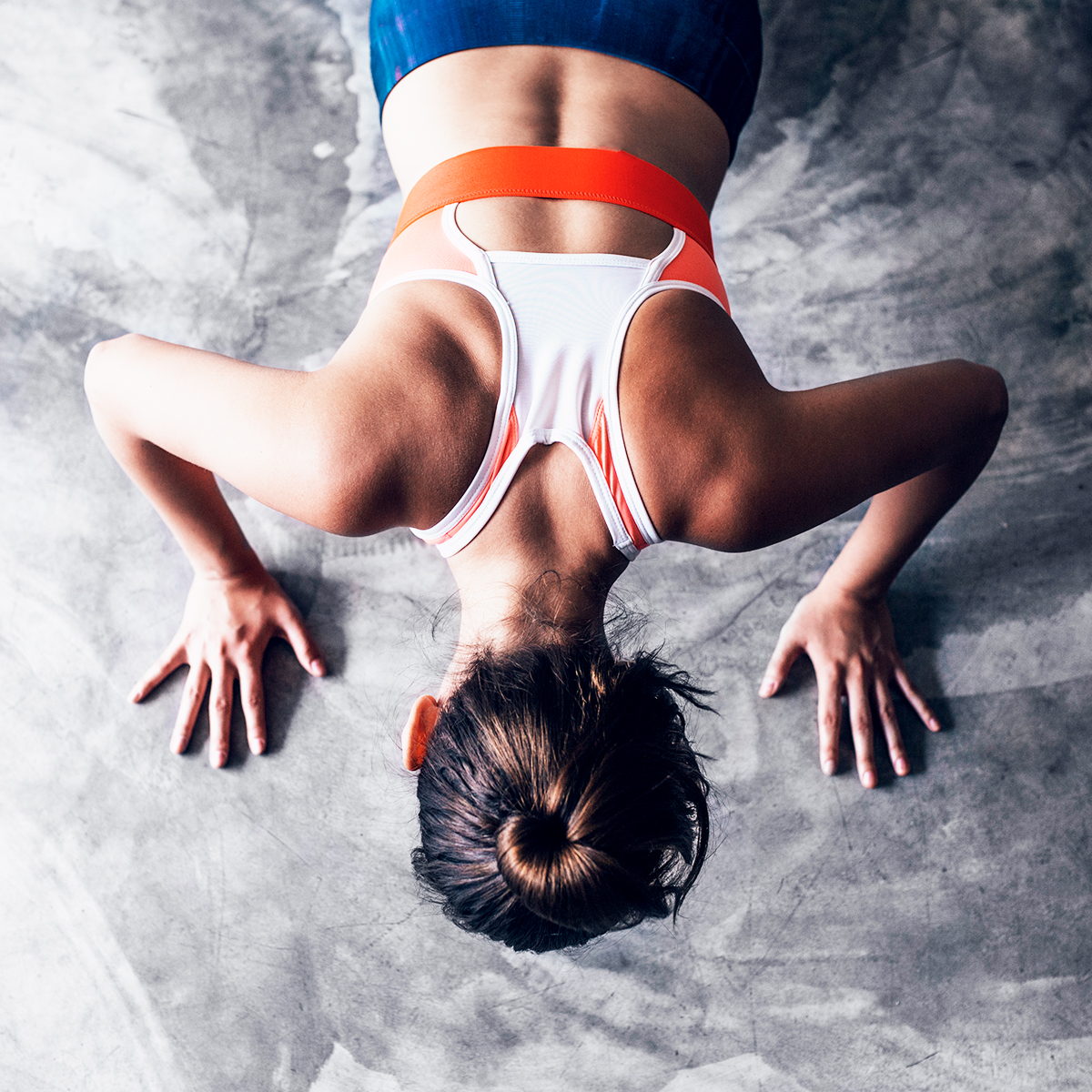
Growing up, I never noticed my anxiety. There were always things I worried about and obsessed over, but I saw it as a normal feeling that everyone experiences.
In high school, I went through events most teenagers go through and worry about, but the way I took it was pretty intense. One of my first major anxiety attacks was when I was 16; I was preparing for the ticket of teenage freedom—a driver’s license. Almost everyone in my class was driving already, and I wanted to start on this new chapter too. I would drive the same routes I knew I was going to be tested on every day after school.
As the test came closer, I had trouble sleeping; when I did, all dreamt about was taking the driving test. When it finally came time to take the test at the DMV, I had a mental breakdown and cried outside while my mom tried to calm me down. It may not have seemed like a big deal—even when I look at it now, it wasn’t. But while pre–driving test nerves are normal, I knew my anxiety was different. Still, after I received my license, I thought that was the last time I would freak out like that again.
I moved to Woodland Hills, California, when I attended college at California State University of Northridge. Down the street from my apartment, I saw a mixed martial arts gym and was so intrigued by learning how to fight. For those who don’t know, jiujitsu is a form of mixed martial arts that originated in Brazil. It’s a grappling sport that doesn’t consist of any punches or kicks, and the only way to win is to dominate or submit your opponent by breaking a bone or choking them.
It’s what you see when you watch a UFC fight and they’re on the ground finding ways to overpower their opponent. I took one class and immediately felt this rush and empowerment I hadn’t experienced before. Jiujitsu has been a huge part of my life for about two and a half years, and I now train about five to six days a week. However, when I welcomed jiujitsu into my life, I didn’t know I was also welcoming a somewhat new (but familiar) feeling of extreme anxiety I thought I left behind at the DMV.
After six months of training 90 minutes every day, six days a week, my teammates and jiujitsu professor convinced me to participate in their next competition in two months. Now that you know how I prepared for my driver’s license, you can imagine how hard I trained for my first fight. While also balancing school and work, training became my first priority. I was going to nine jiujitsu classes per week, skipping work and school once a week and traveling 20 miles to squeeze in extra morning training sessions.
My body wasn’t used to the sudden increase in training, and as the competition got closer, I became a restless zombie. I would wake up in the middle of the night covered in sweat, and headaches became common. All I could think about was the competition and what my first fight was going to be like. As each month passed and my fight grew closer, the pain in my chest became more pronounced. It got so uncomfortable I would have to step outside or excuse myself from class to be in a quiet place so I could catch my breath. I didn’t understand why I was so anxious, but I figured it was normal for a first-time competition.
The day arrived, and I was questioning why I was even there in the first place. I could have been relaxing at home and not be putting myself through all of the anguish and anxiety to prove I was good enough. My biggest fear wasn’t my opponent; it was if everything I put myself through was going to be worth it in this five-minute round battle. My name was called to step on the mat to fight a complete stranger who didn’t know the extent of what I was feeling. On my third and last fight for gold, I thought I had it in the bag when I managed a triangle choke I thought was going to seal the deal. My legs ended up giving out, and I took home the silver.
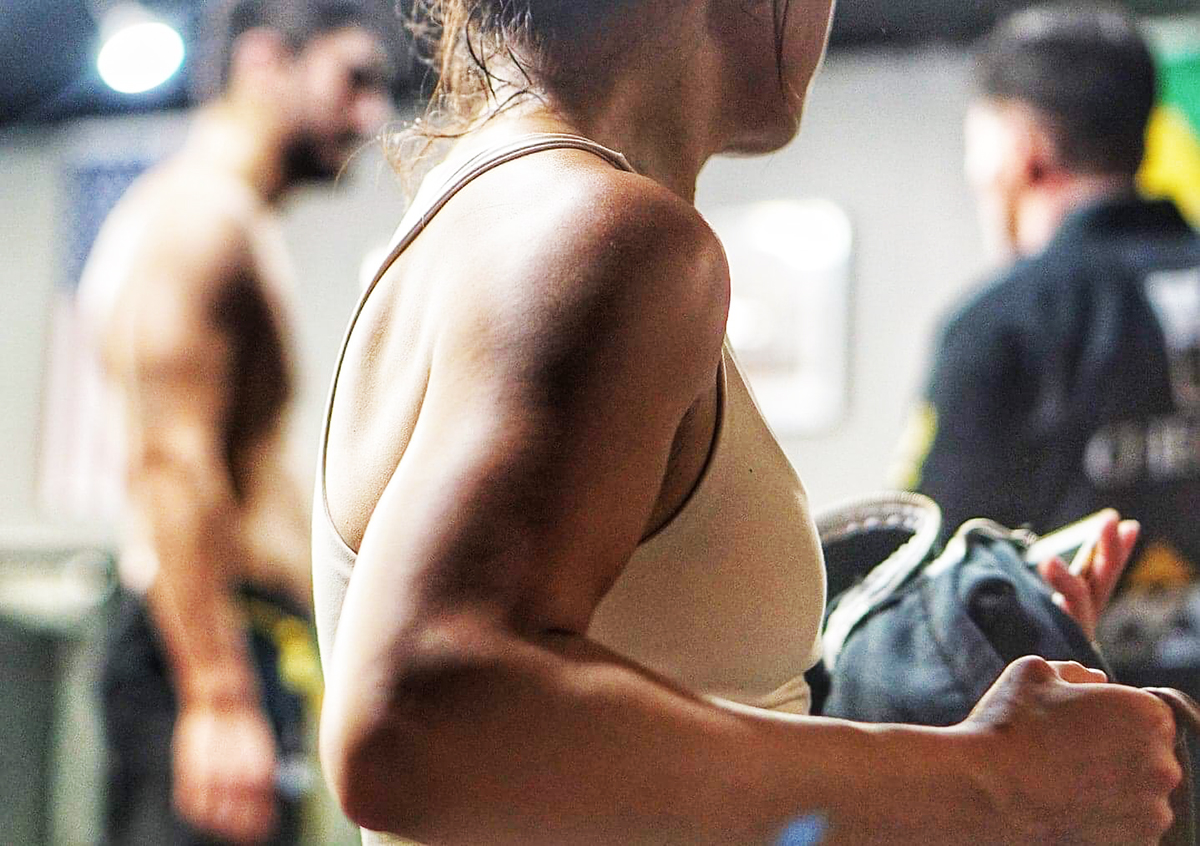
I was proud of how well I did for my first competition, but I wasn’t satisfied. I knew I could’ve done better and that I let first place slip out of my hands. I was told that your first competition would always be the most nerve-wracking one and that everything after would be much easier because you know what to expect. So I decided to compete at the biggest jiujitsu competition of the year: Worlds. This time I wanted to drop a weight class, which meant I had to lose eight pounds.
The notion that it would get easier couldn't have been further from the truth. On top of training every day, I was also running after each jiujitsu class for extra cardio to lose weight. Dinners started to become smaller, and cucumbers and tuna became my go-to meal. My anxiety was through the roof. I was falling asleep at 5 a.m. every morning, unable to stop my self-doubts from flooding my mind. Was I going to make weight? Was I even good enough to compete at this level?
I stopped going to my classes because I was so tired and stressed. Training wasn’t going well either because I was hardly eating. I would go home so upset, lock myself in the bathroom, and cry in private because I was so disappointed in my performance during training. I was soon hating myself and became disgusted with how pathetic I was acting.
One day I left work early because I was so exhausted, and I wanted to get some sleep before training. I kept thinking about the competition, and my head would go through blurred phases while my heart beat out of my chest. I pulled over to the side of the road and broke down crying. I called my mom to tell her how worried I was to compete, and because this was the first time she was hearing of my anxiety, she thought I just had a 16-year-old freakout like that time at the DMV. She told me jiujitsu wasn’t my career and that there are bigger problems I should be worrying about. I accepted what she said, wiped my tears, hung up the phone, and drove home.
What my mom said was true—there were bigger problems I should be worrying about. I should be focusing on graduating, finding a career, eating. Although I knew that those things were definitely bigger than a sport I took up as a hobby, I knew what was also true: What I was feeling was real, and it was ruining my life. I was too afraid to tell anyone about what I was going through because I was afraid of people thinking I was exaggerating.
As the days passed, nothing my mom had said made me feel better. I continued to not sleep, not eat, and over-exhaust my body. I went for a two-mile run before I went to train, and I felt so weak. I threw up coffee and soup because it was all I had eaten that day. I hadn’t thrown up since I was in the fifth grade, so I knew my body couldn’t handle it anymore. I turned on the shower and just sat down crying, in private, again. I needed help.
I called my mom again crying and barely catching my breath, and I think that’s when she finally became worried about my mental stability. I asked her for help, and we both agreed that I should start seeing a therapist. At first, I went in telling him that I had extreme anxiety when it came to jiujitsu and competing. I wanted him to give me advice on how to get over my anxiety in order to compete, but when he told me that my anxiety was rooted in something much deeper and couldn’t be fixed overnight, I became disappointed and grew even more anxious.
I felt I could never compete like everyone else. I grew jealous when I saw other teammates and competitors compete and succeed, and I wished I had the mental strength to overcome my anxiety so I could compete too.
I continued to go to therapy, and as I told the therapist more and more about how I felt, I learned that my anxiety wasn’t triggered by jiujitsu but the idea that I had to perform and do something based on people’s expectations. Whether it was because all my classmates were driving or competing because everyone told me to, I subconsciously put a ton of pressure on myself to succeed and have everyone see me succeed. Eventually I was able to open up to a few close friends and family, who gave me more support than I could imagine.
Things were looking up. Training for Worlds got a lot easier. I decided not to cut weight but to just focus on what I know and what I can do in my weight division. My training felt so much stronger, and I was able to focus and balance other priorities in a healthy way. I slept, and I managed to catch up on all of the work I missed in school. I felt stronger and healthier mentally and physically, but I knew the anxiety was still a part of me.
On the day of Worlds, I already felt much better than I did in my previous competition. The anxiety was still there, but the pressure to win didn’t feel as important. However, right when I shook hands with my opponent, I froze. All of the adrenaline rushed in at once, and the next thing you know, I was defending instead of attacking. My opponent managed to set up an armbar (Ronda Rousey’s infamous move to break your arm), and I refused to give in. I held on for as long as I could, trying to escape while my opponent was hyperextending my arm with all her strength. After I heard a loud pop! in my arm, I knew the fight was over.
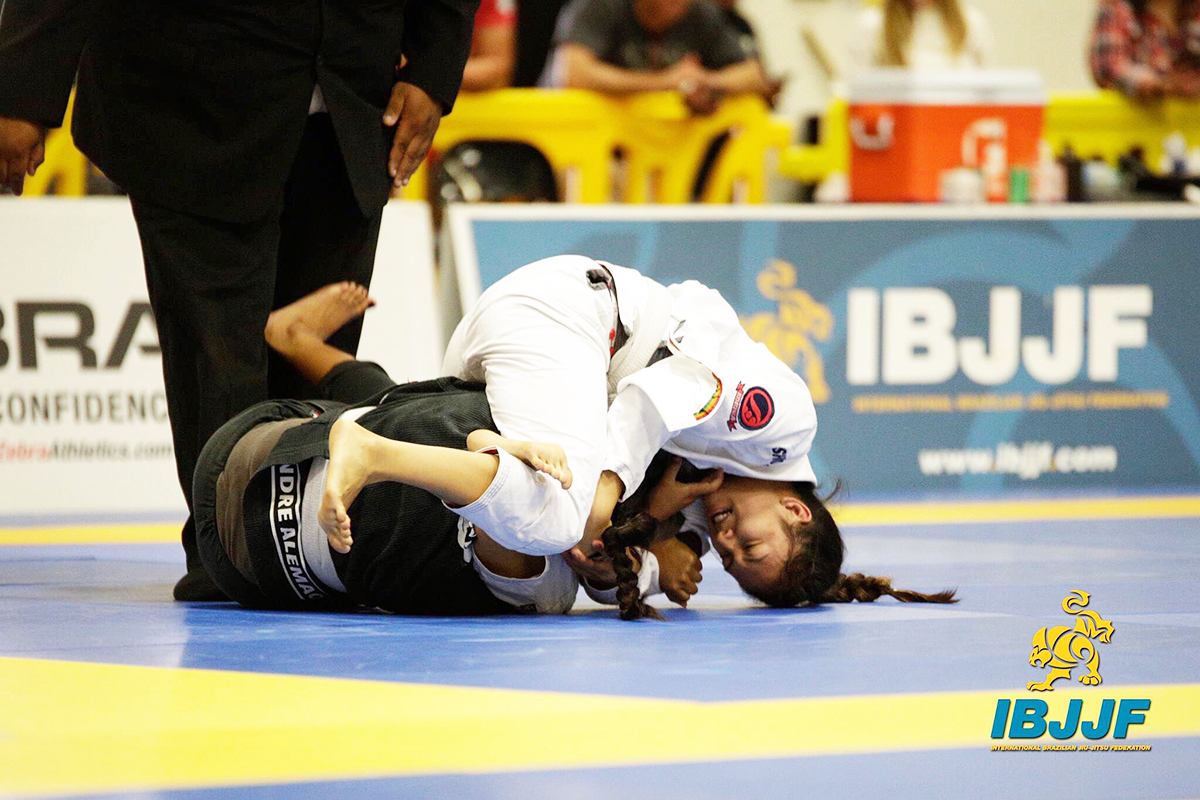
Although I took the loss hard and couldn’t believe that everything I had put myself through didn’t end up in my favor, I gained so much clarity and mental strength from it. It took three months of occupational therapy and a break from jiujitsu to re-evaluate and recollect everything I’ve been through up to that moment. These were the facts: I trained hard, I fought hard, and I lost. In the end, I’m still loved, alive, and was given the opportunity to recover. I now look at that loss now as a slight victory. What I won from that whole experience was realizing I was dealing with something that was real and serious, and in turn, gaining the courage to ask for help.
Therapy did not cure my anxiety. I live with it every day and still get the same feeling every time I think about competing again. The only difference this time is that I have people who are willing to listen, and I don’t have to suffer in silence anymore. I went into therapy looking for someone to tell me what to do, but what I really needed was someone to listen. Anxiety is so misunderstood—I don’t completely understand it myself. What I do know is that I don’t choose to act and feel the way I do in these situations over which most people think I have control. When people say I’m overreacting, that it’s no big deal, or that I should be worrying about bigger problems, they don’t understand that I wish I could just switch it off and move along with my life.
After a three-month break, I returned to jiujitsu. I’m now training because it’s fun to me again, and I’m listening to my body. I constantly have to remind myself that the pressure I feel is all from my anxiety and that I can’t ask myself to do more than my best. I would like to compete again, but I admit that the fear of letting my anxiety take over again is something that holds me back. Anxiety is and always will be an ongoing issue I need to work on in all aspects of my life, not just jiujitsu, but I refuse to let it get in the way of something I love. My first priority is now my mental health. I’m learning to put myself first and allowing myself to be happy again, and it has made all the difference.
Disclaimer
This article is provided for informational purposes only and is not intended to be used in the place of advice of your physician or other medical professionals. You should always consult with your doctor or healthcare provider first with any health-related questions.
-
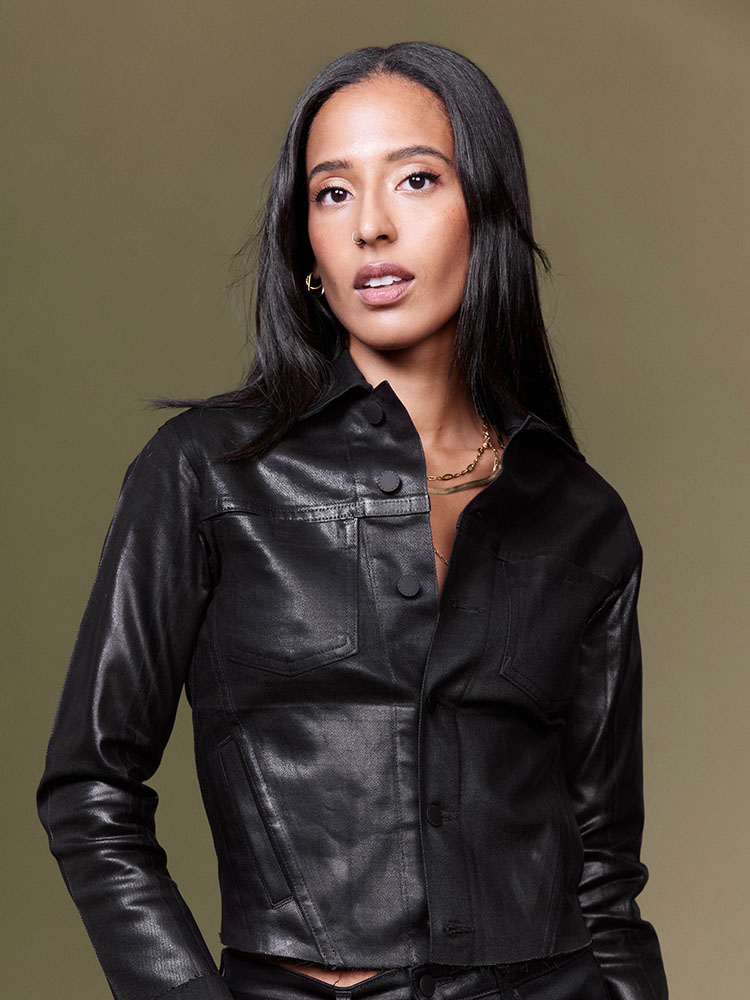 This Founder Shares Why We Should Start Celebrating Rest
This Founder Shares Why We Should Start Celebrating RestBurnout is nothing to be proud of.
By Kia Topps
-
 Why Dr. Deepika Chopra Believes that Optimism is Resiliency
Why Dr. Deepika Chopra Believes that Optimism is ResiliencyWhy you should start embracing every feeling.
By Kia Topps
-
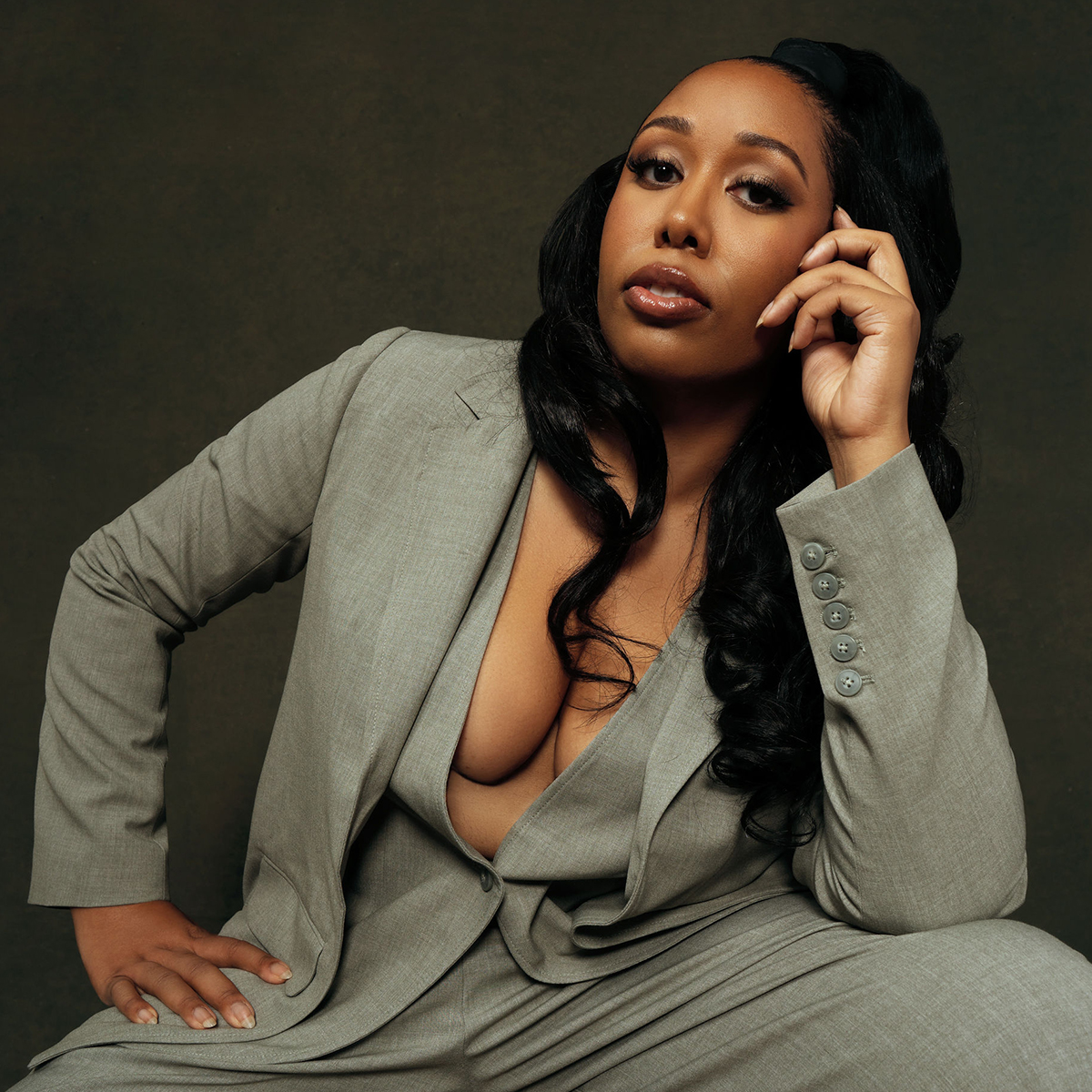 How TikTok's Favorite Photographer Helped Me Find My Confidence
How TikTok's Favorite Photographer Helped Me Find My ConfidenceI renewed my relationship with myself.
By MacKenzie Green
-
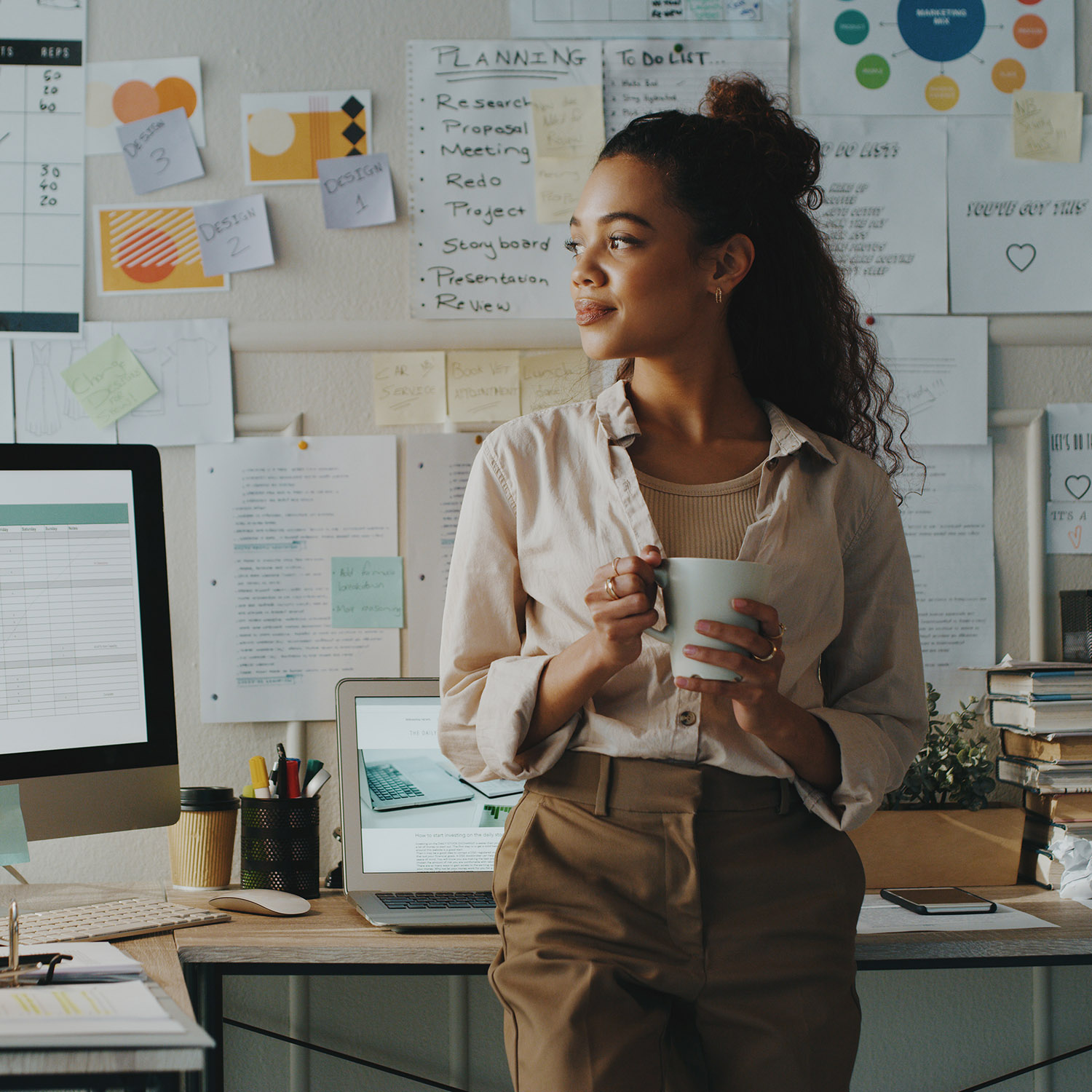 11 Things to Do If You're Dealing With Anxiety at Work
11 Things to Do If You're Dealing With Anxiety at WorkThese can help.
By Casey Clark
-
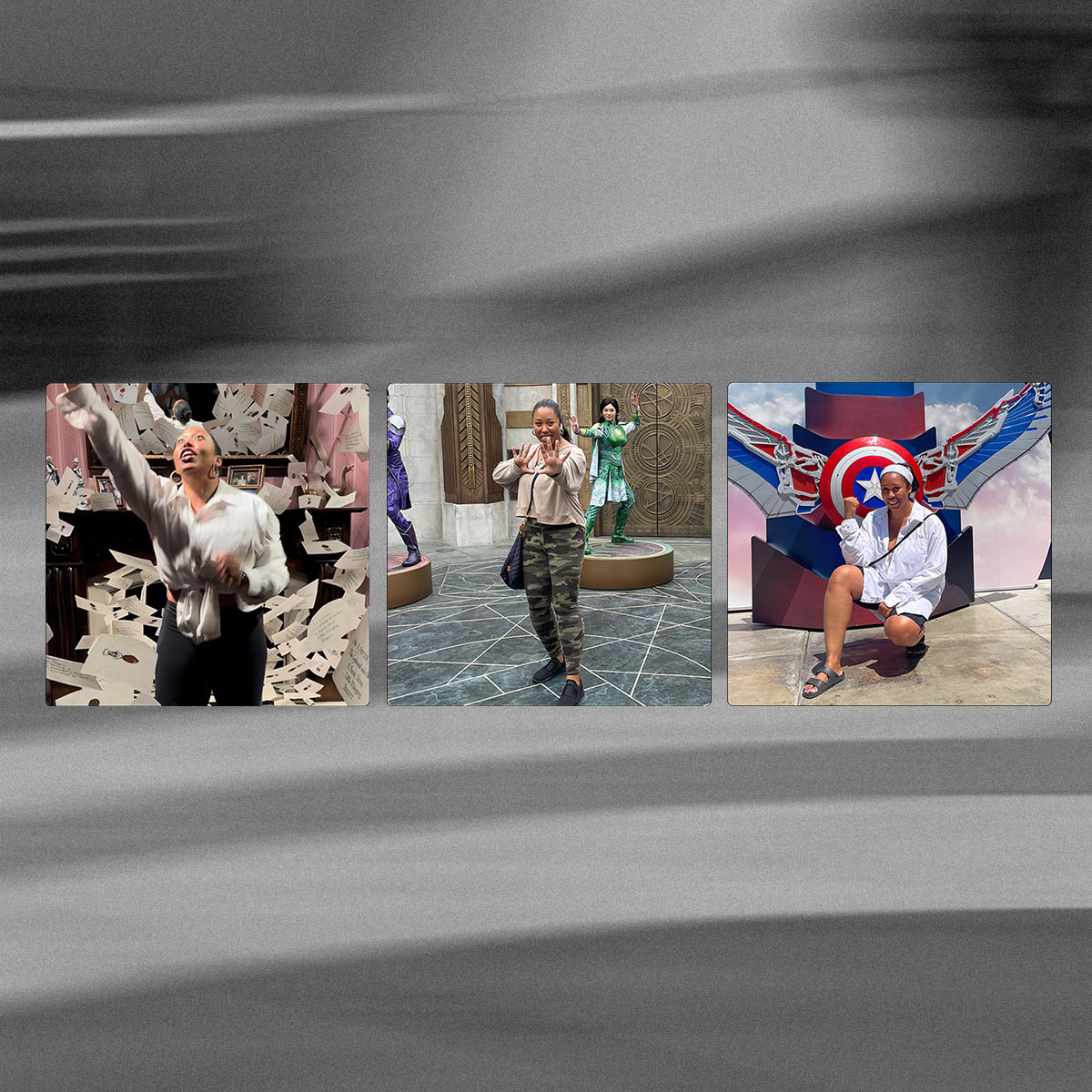 Here's Why I Make Time for "Play" Every Day—and Why You Should Too
Here's Why I Make Time for "Play" Every Day—and Why You Should TooIt's one of the best things you can do for yourself.
By MacKenzie Green
-
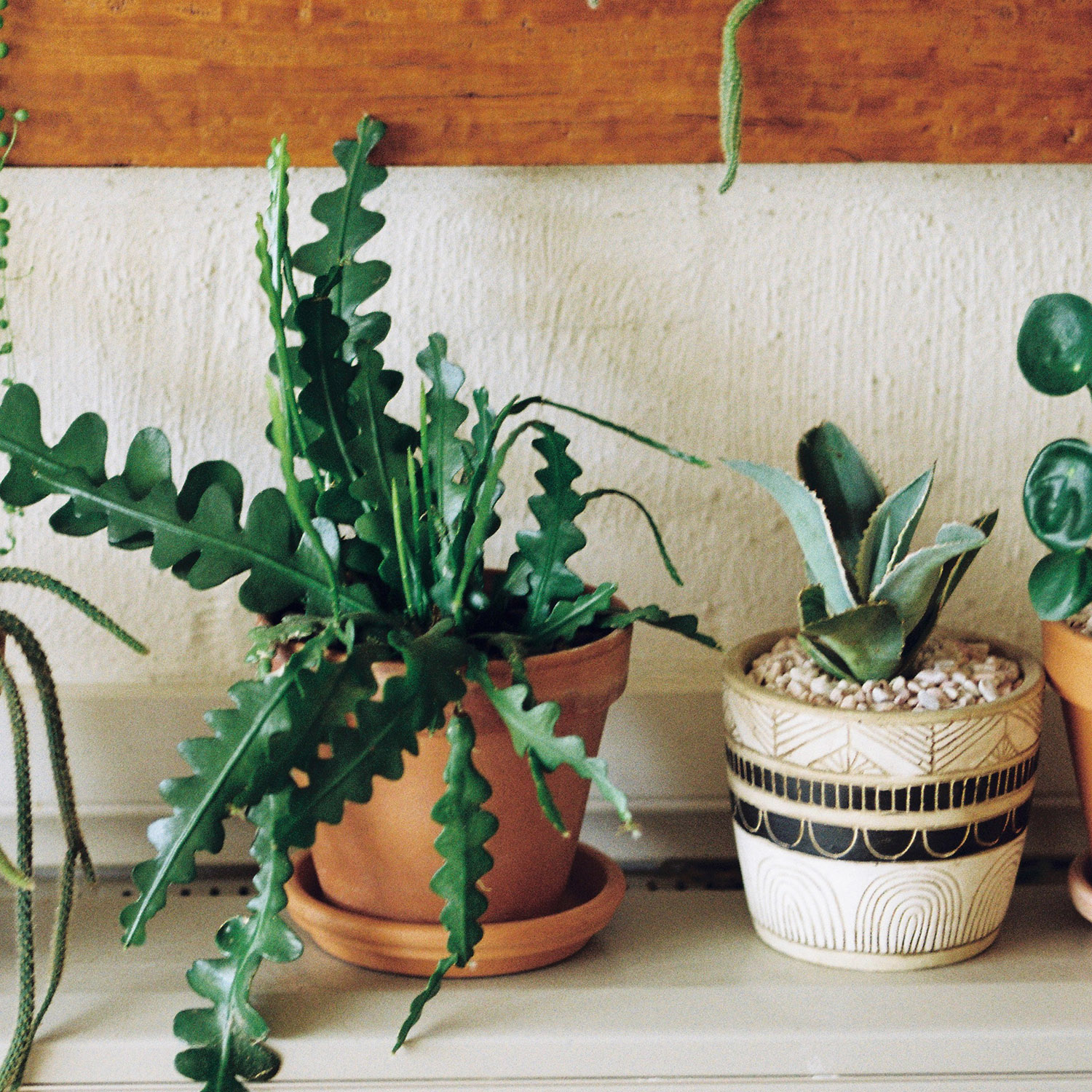 How to Choose a Plant Based on Your Personality Type
How to Choose a Plant Based on Your Personality TypeDo you have a green thumb?
By Sarah Yang
-
 If You're Super Stressed Out, These 17 Things Can Make You Feel Better
If You're Super Stressed Out, These 17 Things Can Make You Feel BetterTry them.
By Sarah Yang
-
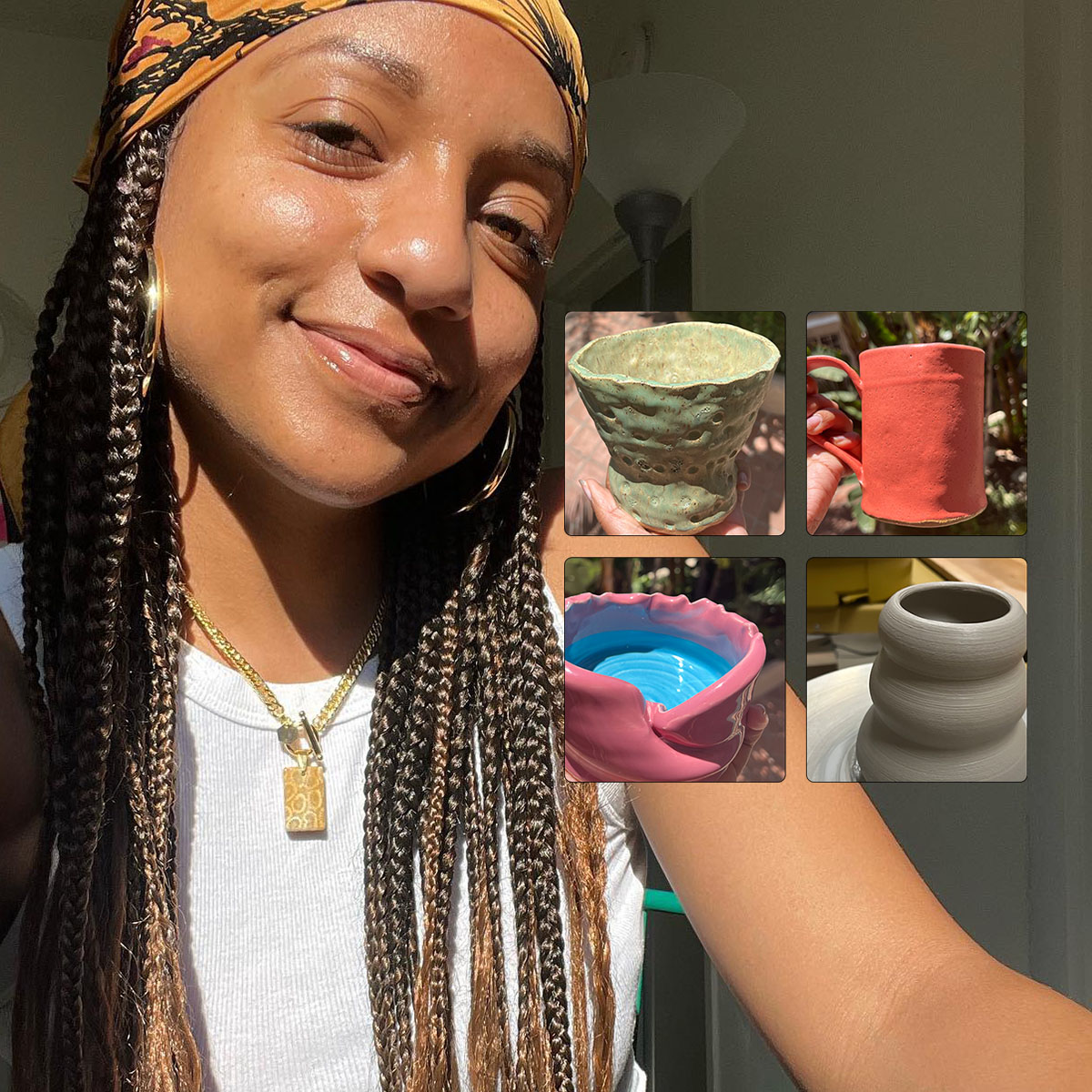 I Tried Pottery Classes as a Way to Better My Mental Health—Here's What Happened
I Tried Pottery Classes as a Way to Better My Mental Health—Here's What HappenedI left my classes with more than I bargained for.
By Kia Topps

